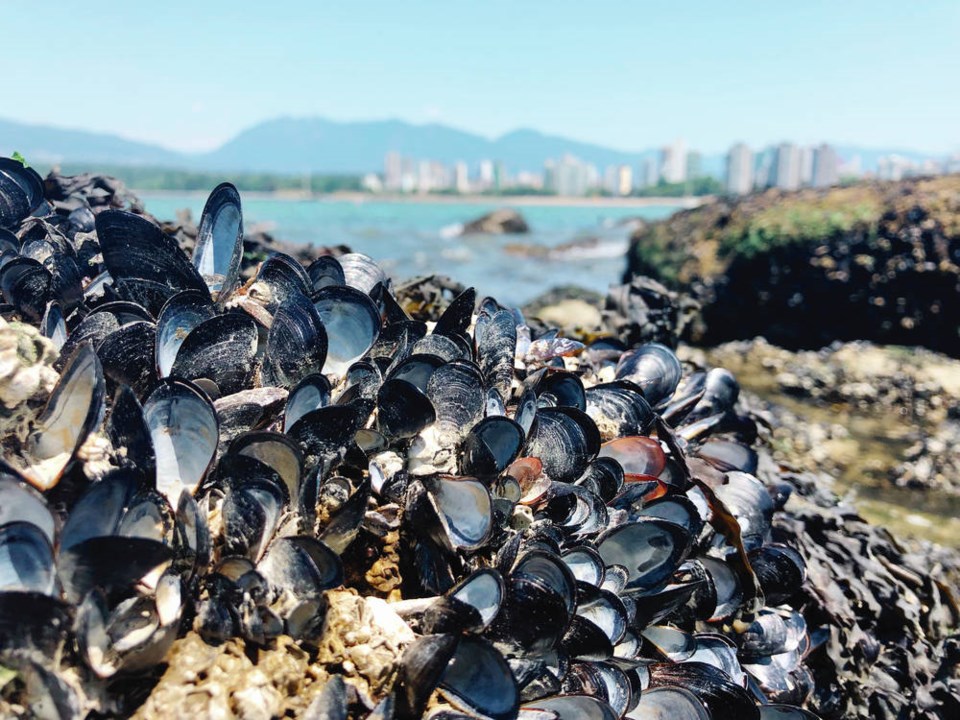Headline writers naturally love big numbers. A story flagged with ŌĆ£300,000 march for justiceŌĆØ grabs more attention than ŌĆ£12┬Ārally downtown to protest mask requirements.ŌĆØ
Add in a bit of gore, lurid detail and shock value, and a sensational headline practically writes itself.
And with news media of all sorts seeking to maximize ┬Ład-click revenue from their online platforms, the race towards clickbait can be ┬Łtempting. Even ŌĆ£seriousŌĆØ news outlets canŌĆÖt always resist the drive to hook and land readersŌĆÖ eyes on online ads.
So itŌĆÖs not surprising that the recent heat wave in sa╣·╝╩┤½├Į has resulted in a crop of ┬Łcolourfully worded internet candy. In particular, a University of British Columbia marine biologistŌĆÖs report of heat-killed and rotting shellfish on VancouverŌĆÖs Kits Beach was a headline writerŌĆÖs dream. It was, it could be said, a news gourmandŌĆÖs story dished up, garnished and served up in all its reeking glory on a platter.
With a story like that, how could you not leverage all of the inherent shock, horror, disgust and key words to hook and land readers?
Even the CBC got into the action, with ŌĆ£More than a ┬Łbillion seashore animals may have cooked to death in sa╣·╝╩┤½├Į heat wave, says UBC researcher.ŌĆØ The word ŌĆ£billionŌĆØ alone would have snagged attention, but ŌĆ£cooked to deathŌĆØ nailed it. Referring to the researcher and the university kept it real, in effect saying ŌĆ£weŌĆÖre not making this stuff up.ŌĆØ
In the days after the story broke, tracking how ┬Łdifferent news outlets added their own headline touches helped to leaven the dire news of the heat waveŌĆÖs consequences. By changing this or that word, they de-emphasized and super-emphasized this or that. It also made the headlines their own, differentiating each from the other, almost identical billings.
ŌĆ£Crushing heat wave cooked shellfish aliveŌĆØŌĆ”. ŌĆ£Extreme heatwave baked sea creatures in their shellsŌĆØŌĆ”. ŌĆ£A┬ĀBillion ┬ŁSeashore Animals Cooked AliveŌĆØŌĆ”. ŌĆ£Heat Wave Is ┬ŁBroiling Billions of Marine Animals AliveŌĆØŌĆ”. ŌĆ£1 Billion Sea ┬ŁCreatures Cooked to DeathŌĆØŌĆ”.
This small sample takes us from ŌĆ£cooked to deathŌĆØ to ŌĆ£cooked aliveŌĆØ and from cooked to baked to broiled. ItŌĆÖs not just a heat wave or even an ŌĆ£extreme heat wave,ŌĆØ itŌĆÖs a ŌĆ£crushingŌĆØ heat wave.
For those with fond ┬Łmemories of high school English, the hard ŌĆ£kŌĆØ sounds of ŌĆ£crushingŌĆØ and ŌĆ£cookedŌĆØ resonates with an appropriate consonance, recalling the sounds made when empty clam shells clack and clatter on your plate or when you crack open a crab claw.
And why not take your lobster crackers and crab picks to pick the headline content apart too? ŌĆ£Cooked AliveŌĆØ? ŌĆ£Baking ŌĆ” in their shellsŌĆØ? Ah, now this is only shocking when Mother Nature is the chef. When weŌĆÖre the ones doing the cooking, itŌĆÖs expected. If you go down to ┬ŁFishermanŌĆÖs Wharf and buy mussels, clams or oysters to cook at home, youŌĆÖre buying living creatures, and yes, youŌĆÖll be cooking them alive, in their shells. The requirement to drop live ┬Łlobsters and crabs into boiling salt water to cook them keeps many home cooks from considering them for dinner.
Now contrast the breathless banners with the Washington PostŌĆÖs staid and measured ŌĆ£Heat wave killed marine wildlife en masse.ŌĆØ HereŌĆÖs a news brand that spurned the free platter of flash-fried ┬Łsensationalism. TheyŌĆÖve sent it back to the kitchen with a ŌĆ£No, thanks. WeŌĆÖll have the prime rib instead,ŌĆØ ┬Łtaking no chances with ┬Łnorovirus, red tide, vibrio, or accusations of overstated melodrama from miss-cooked and badly refrigerated shellfish.
Or maybe they considered all the headlines already published and opted to differentiate themselves by tone instead of by choice of adjectives.
Not that the recent heat didnŌĆÖt hammer other foods or most other plants and critters in sa╣·╝╩┤½├Į Tragically, hundreds of people died. Pets perished. Chicken farmers spent the heat wave trying to cool barns to prevent their birds from dying, while dairy farmers scrambled to keep their cows as hydrated and cool as possible.
Wildlife rescue organizations took in dozens of animals, mainly juvenile birds of prey. ChilliwackŌĆÖs Reptile Room reported the loss of hundreds of rodents and at least two snakes and eight geckos. Blueberry, raspberry and tree-fruit crops suffered ŌĆö yet another financial hit for the provinceŌĆÖs farmers. Forests and one community burned, with all the attendant tragic outcomes.
But other than an occasional headline referencing tree fruits being ŌĆ£cooked on the branch,ŌĆØ those stories didnŌĆÖt tend to generate the same headline excesses.



